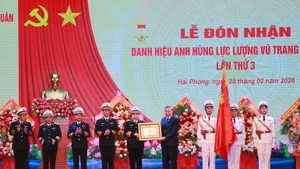The Congress set out three main tasks: (1) to consolidte and develop the Party. (2) to win over the masses. (3) to fight against imperialist war.
The Congress decided to establish the Anti-Imperialist War Committee led by the Party, comprising many revolutionary organisations and patriotic, peace-loving, and just individuals.
For the first time, the Congress passed important resolutions to gather forces and build a mass movement: resolution on mobilising workers, peasants, soldiers, women, and youth; on the anti-imperialist alliance; on the work among ethnic minorities; on the self-defense and red relief forces.
The Congress recognised the Charter of the Indochinese Communist Party.
The Party Central Committee elected at the Congress consisted of 13 comrades, including nine official members and four alternate members. Comrade Le Hong Phong was elected General Secretary.
Comrade Nguyen Ai Quoc was elected the Party’s representative to the Communist International.
After five years of unifying the three party organisations, the First Congress of the Party had great historical significance:
- Marking the fundamental victory of the struggle to preserve and restore the Party’s organisational system from the grassroots to the Central level.
- Unifying the revolutionary movement of workers, peasants, and people of all walks of life under the leadership of the Party Central Committee.
In July 1936, Comrade Ha Huy Tap was elected General Secretary.
In March 1938, comrade Nguyen Van Cu was elected General Secretary.
In May 1941, the Party Central Committee Conference held in Pac Bo (Cao Bang) elected comrade Truong Chinh as General Secretary.
(Compiled from: Complete Party Documents; Chronological History of the Communist Party of Viet Nam; tulieuvankien.dangcongsan.vn).
GENERAL CONTEXT
The First Congress of the Party held in Macau, China with 13 delegates, elected comrade Le Hong Phong as General Secretary.
July 1936: Comrade Ha Huy Tap was elected General Secretary.
March 1938: Comrade Nguyen Van Cu was elected General Secretary.
May 1941: The Party Central Committee Conference held in Pac Bo (Cao Bang) elected Comrade Truong Chinh as General Secretary.
DOMESTIC SITUATION
Immediately after its establishment, the Communist Party of Viet Nam led the entire people to rise up in struggle, starting with the revolutionary movement of 1930-1931, with the peak being the Nghe Tinh Soviet.
The revolutionary movement of 1930-1931 strongly affirmed in practice the correctness of the revolutionary line set forth by the Party; at the same time, it left valuable lessons on the worker–peasant alliance; on building the National United Front; and on launching the mass movement to fight for and protect the government.
From October 14 - 31, 1930, the Party Central Committee held its First Conference in Hong Kong (China), chaired by Comrade Tran Phu.
The Conference adopted the Political Platform, along with a resolution on the current situation in Indochina and the urgent tasks of the Party, and a number of resolutions on workers, peasants, youth, women, the army, and relief issues, as well as the charter of mass organisations.
The Conference decided to change the name of the Communist Party of Viet Nam to the Indochinese Communist Party, and approved the Charter of the Indochinese Communist Party, and elected the official Central Committee of the Party. Comrade Tran Phu was elected General Secretary.
Party organisations gradually recovered after the White Terror.
INTERNATIONAL SITUATION
The international communist and workers’ movement continued to develop in favor of the struggle of colonial peoples.
The great achievements in all aspects of building socialism in the Soviet Union had a great impact on the revolutionary movement in the colonies.
The capitalist countries sought to overcome the crisis in two fundamentally different ways: fascistising the political regime, and preparing for war (Germany, Italy, Japan) and carrying out socio-economic reforms (England, France, the US). Fascism was a threat to world peace and security.
In Indochina, the workers’ movement gradually recovered. The people in urban and rural areas participated in the struggle in many forms, such as student strikes, merchant strikes, and farmers' anti-tax demonstrations.

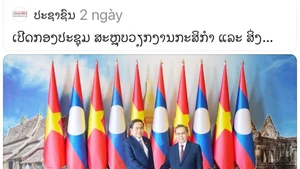



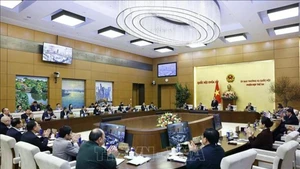

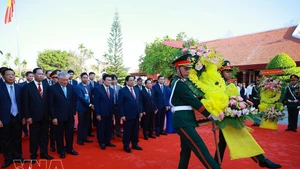

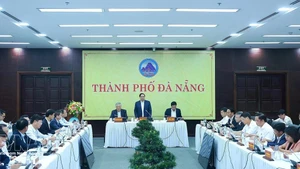
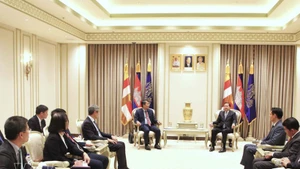
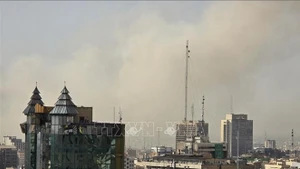
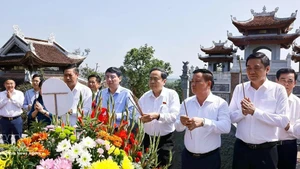
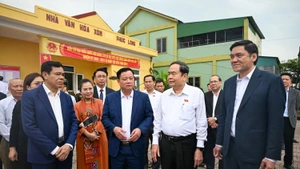
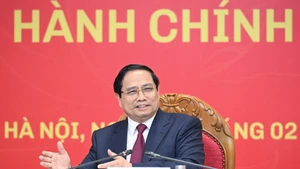
![[Photos] Party General Secretary presents title “Hero of the People’s Armed Forces” to the Navy](https://en-cdn.nhandan.vn/images/5992a12dd6e78b9bfb434962ff1830731c3ef6c1538d722fbb2593b0fa31ecfe38d01cdaaaab03a54304ad015b6d4ff5bdeadcaf72af28ae748ff126afbb566c/280226-tbt-6.jpg.webp)
